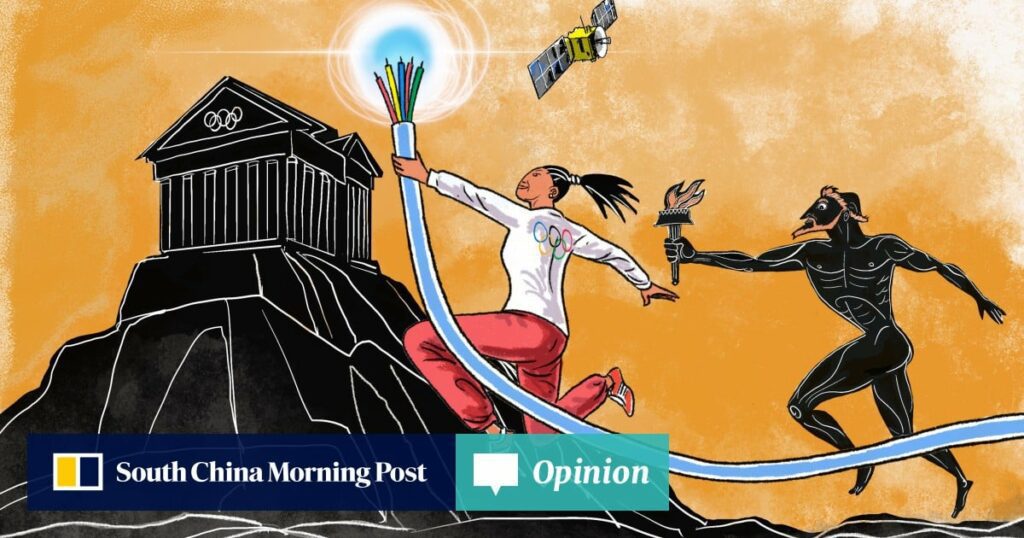However, in contemporary times, the price tag for an average Olympics is likely to deter most cities or countries, even rich ones. Any international gathering of this size also becomes an obvious target for terrorist groups, even ones having no grievance against the host city, as was the case in Munich in 1972.
Moreover, a disaster, like the Covid-19 pandemic or an extreme weather event can mean that most of the benefits of host countries’ investments are lost, like Tokyo’s were. With climate change, we can expect more disasters.
The costs and risks have resulted in hosts being almost exclusively clustered in richer countries. Northeast Asia and Australia have joined traditional summer host sites in Europe and North America, but no Olympics have been held in Southeast Asia, South Asia or Africa. Only one has been hosted in South America. Brisbane had little competition to its offer to host the 2032 Summer Games, as did Salt Lake City for the 2034 Winter Games. Commentators wryly noted that the Olympic organisers needed these cities more than the cities needed the Olympics.
Fireworks go off on July 21, 2021, after Brisbane, Australia, was named host of the 2032 Summer Olympics. Photo: AFP
What can be done? For the much larger Summer Olympics, it has been suggested to build a permanent location, like for the classical Greek games, held every four years for centuries in Olympia with its stadium that could seat tens of thousands. In ancient Greece, the event was a religious ceremony where the athletic competitions honoured Zeus, king of the gods, and named for his abode on Mount Olympus. Local wars were suspended to allow athletes to attend.
It’s not that the ancient games were immune from politics. Continuing into the Roman era, a youthful emperor Nero, an enthusiast of Greek culture, decided to enter the Games of 67 AD. One was a 10-horse chariot race, his favourite sport. Although he fell from his chariot and didn’t finish, he was still declared the winner by the judges, as was true for every other event he entered. His death the next year brought another political change, and the Greek judges annulled his victories.
But classical political interference was arguably rare compared to today’s Olympics, where wars continue during the Games. The Games themselves and their hosts have become natural targets for terrorists. No matter where the Games are held, a single permanent location might intensify these problems.
The best way to future-proof the Olympics and make them more accessible to developing countries is to take advantage of telecommunication technologies to organise a multinational Olympics seamlessly linked by fibre optic cables and satellites.
Groups of Olympic sports could be held at several sites where they are most popular and thus have existing facilities. For example, Hong Kong or Indonesia could host racquet sports such as badminton and India could hold hockey matches. Aquatics events could be in Australia, with gymnastics in Northeast Asia or North America, football in South America, equestrian sports in Europe, wrestling in central Asia, track and field in East Africa and surfing in South Africa.
Such sports would still be rotated, but among places sharing enthusiastic fan bases, facilities and eager sponsors. With reduced costs, cities in developing countries could more easily join the elite Olympic host sites. Athletes would still compete with the world’s very best in their sports.
The challenge for the International Olympic Committee (IOC) and the media would be to knit it together. For the media, it would mean almost continuous live coverage over at least a two-week period. The IOC would probably need a lead host city or country to help with coordination.
The price of reduced costs, enhanced security and increased outreach thus come with logistical and administrative challenges. But if one purpose of the Games is to foster international cooperation, and not just to conduct global athletic competitions, then the IOC should be eager to step up.
Most couch-potato fans would not notice much difference. But real aficionados could seek out a sports group in a time zone convenient for their viewing rather than perhaps having to get up in the middle of the night. And those who enjoy seeing and learning about the host location will find many more of them.
The Games would be truly global in a way never before possible. Is the world ready for that? Maybe not for 2036, but cost, safety and even considerations for comfort, equity and the environment may make it almost inevitable.
Charles E. Morrison is a research fellow and former president with the East-West Center in Honolulu. He writes on sports issues from time to time
Source link : http://www.bing.com/news/apiclick.aspx?ref=FexRss&aid=&tid=66b92fde9e48471c8e6ff99dbf2bf7c3&url=https%3A%2F%2Fwww.scmp.com%2Fopinion%2Fworld-opinion%2Farticle%2F3274056%2Ftime-share-olympic-glory-global-south&c=13338920199153361885&mkt=en-us
Author :
Publish date : 2024-08-11 10:29:00
Copyright for syndicated content belongs to the linked Source.
